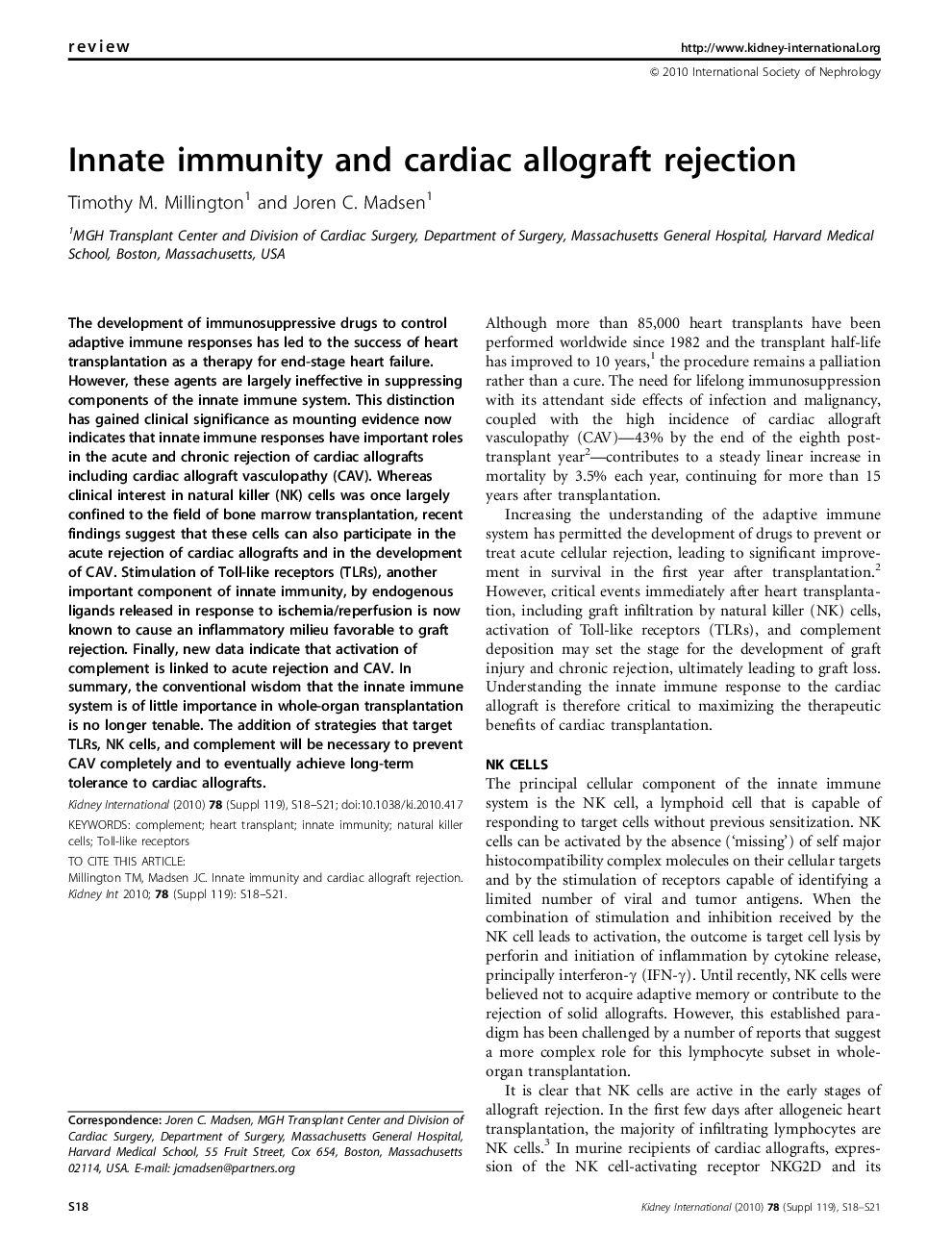| کد مقاله | کد نشریه | سال انتشار | مقاله انگلیسی | نسخه تمام متن |
|---|---|---|---|---|
| 8773271 | 1599151 | 2010 | 6 صفحه PDF | دانلود رایگان |
عنوان انگلیسی مقاله ISI
Innate immunity and cardiac allograft rejection
دانلود مقاله + سفارش ترجمه
دانلود مقاله ISI انگلیسی
رایگان برای ایرانیان
کلمات کلیدی
موضوعات مرتبط
علوم پزشکی و سلامت
پزشکی و دندانپزشکی
بیماریهای کلیوی
پیش نمایش صفحه اول مقاله

چکیده انگلیسی
The development of immunosuppressive drugs to control adaptive immune responses has led to the success of heart transplantation as a therapy for end-stage heart failure. However, these agents are largely ineffective in suppressing components of the innate immune system. This distinction has gained clinical significance as mounting evidence now indicates that innate immune responses have important roles in the acute and chronic rejection of cardiac allografts including cardiac allograft vasculopathy (CAV). Whereas clinical interest in natural killer (NK) cells was once largely confined to the field of bone marrow transplantation, recent findings suggest that these cells can also participate in the acute rejection of cardiac allografts and in the development of CAV. Stimulation of Toll-like receptors (TLRs), another important component of innate immunity, by endogenous ligands released in response to ischemia/reperfusion is now known to cause an inflammatory milieu favorable to graft rejection. Finally, new data indicate that activation of complement is linked to acute rejection and CAV. In summary, the conventional wisdom that the innate immune system is of little importance in whole-organ transplantation is no longer tenable. The addition of strategies that target TLRs, NK cells, and complement will be necessary to prevent CAV completely and to eventually achieve long-term tolerance to cardiac allografts.
ناشر
Database: Elsevier - ScienceDirect (ساینس دایرکت)
Journal: Kidney International - Volume 78, Supplement 119, December 2010, Pages S18-S21
Journal: Kidney International - Volume 78, Supplement 119, December 2010, Pages S18-S21
نویسندگان
Timothy M. Millington, Joren C. Madsen,